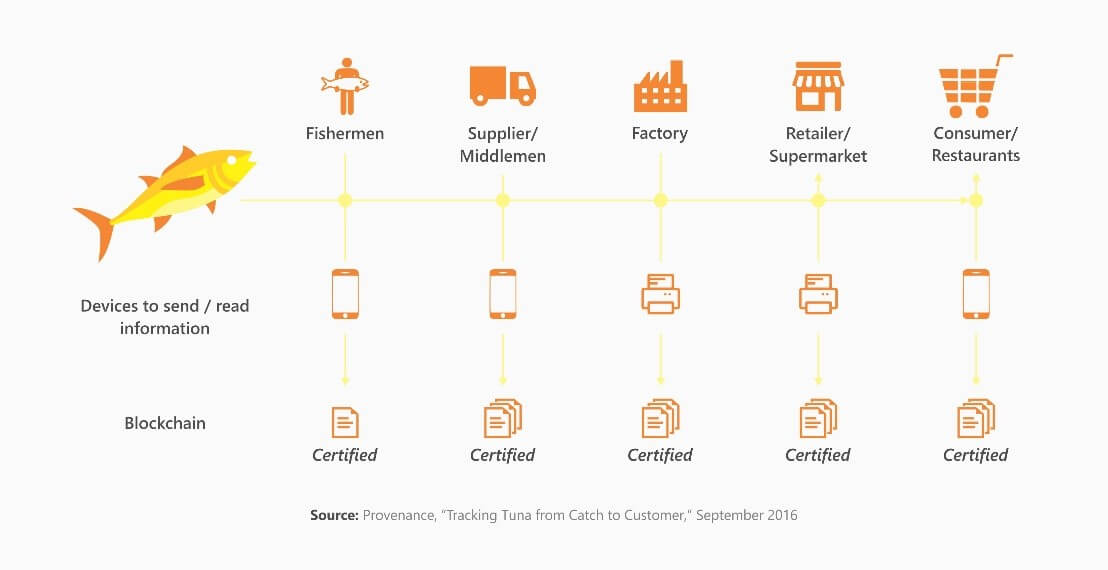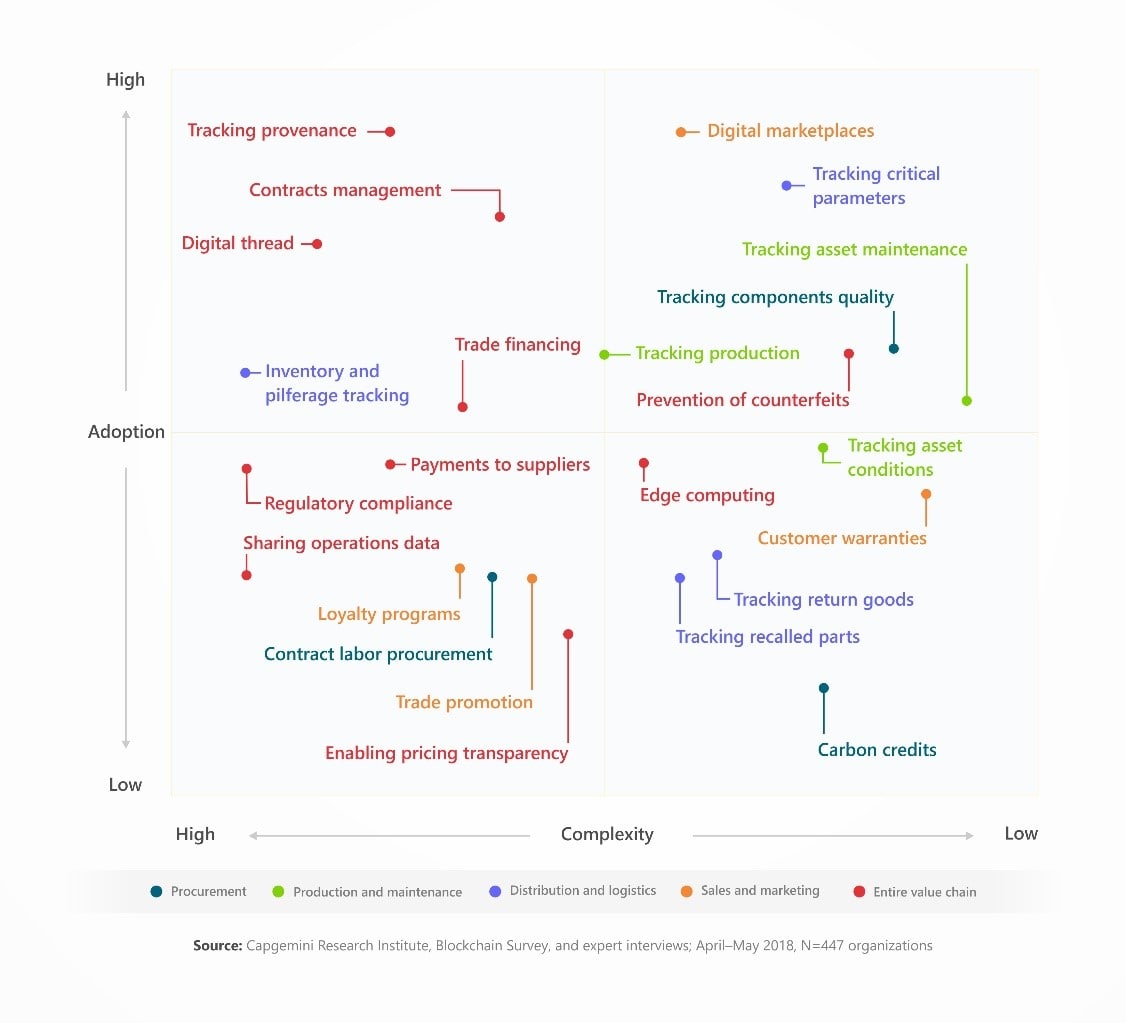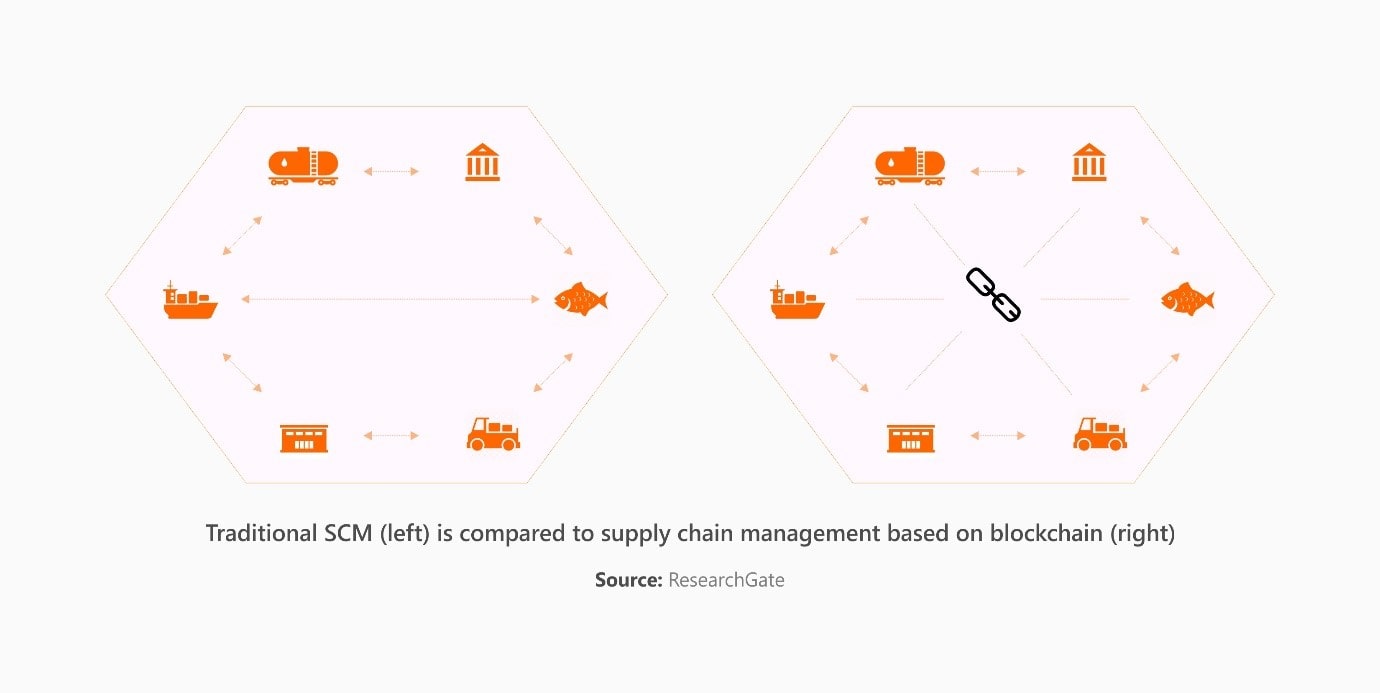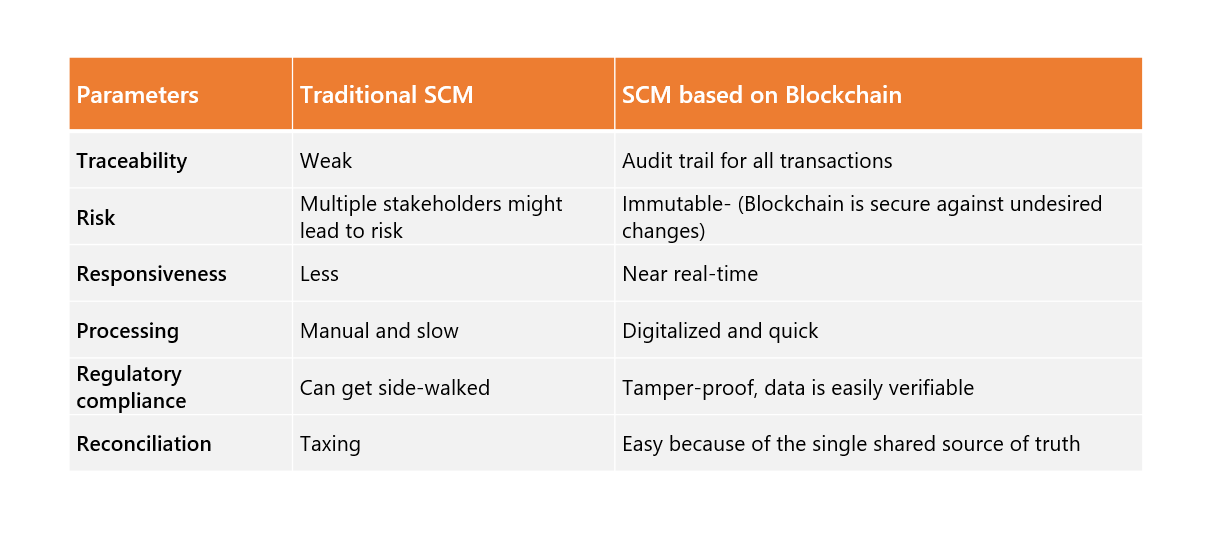Jul 01, 2020
From the Past: In September 2013 and early 2016, several people in the United States got infected with strains of Listeria bacteria. Food and Drug Administration (FDA) and the Centers for Disease Control and Prevention (CDC) recalled 11 frozen vegetable products because of potential Listeria contamination. It took nearly 3 years to identify the bacterial strain and link it with the supplier. Finally, as of September 26, 2019, this investigation got over.
Indeed! Managing the supply chain is a crushing errand!
It’s estimated that a typical beverage recall can cost the manufacturer close to USD 8 million.
Will the past reappear again amid COVID-19?
Uncalled-for! We have blockchain in the supply chain now, assuring us of the source of goods and services.
Blockchain technology adoption on the supply chain decreases the complexity involved in traditional supply chain management (SCM) and will tackle a few of the perennial issues compromising supply chain effectiveness.
Let’s gain a deeper understanding of blockchain maturity in SCM here.
A complete visibility is the key to supply chain efficiency and agility. COVID-19 has led to lockdowns, suppliers in the chain are ceasing production, and logistics providers are not transporting goods as seamlessly across the borders. Multiple regions and organizations have halted their production impacting economies.
- 94% of fortune 1000 companies are witnessing supply chain disruptions
- 75% of companies faced negative impacts on their business
To maintain the successful distribution of critical goods and services safely and securely, business leaders must make decisions. Traditional supply chain technologies are deemed obsolete, while blockchain stays promising. Many business leaders are turning toward blockchain technology.
Given below is the source of Tuna fish using blockchain technology, which shows how blockchain works in the SCM. The World Wildlife Fund (WWF) successfully piloted the “bait-to-plate” project to track Tuna on a blockchain-based platform using RFID tags and QR codes.

Further, Capgemini has identified 24 blockchain use cases across the value chain.

What makes blockchain technology hyped in the context of SCM?
Here’s how blockchain technology improves SCM. Blockchain creates transparency to every member of the network providing a single point of truth. Each element in the supply chain trajectory is linked and verifiable anytime in real-time.

We have tabulated the effect of blockchain technology adoption on supply chain traceability, agility, and performance.

These features of blockchain have made business leaders rely on technology. Here are a few use cases where blockchain is being used in SCM.
Use Cases:
- The Chain Integration Pilot (CHIP) of the Auburn University RFID Lab, Alabama published a proof-of-concept whitepaper using live data from brands like Nike, Herman Kay, Kohl’s and Macy’s retailers in the US, and PVH Corp. The PoC designed to ingest, encode, distribute, and store serialized data throughout the supply chain on Hyperledger Fabric demonstrates the blockchain efficiency against the contemporary supply chain.
- Walmart and Nestle have used blockchain in IBM’s Food Trust source project. All of them preferred to use Hyperledger Fabric, the dominant protocol for supply chain applications.
- The BMW Group uses blockchain in purchasing to ensure the traceability of components and raw materials in multi-stage international supply chains. It initiated the Part Chain project to provide data transparency for all of its partners.
- Tesla uses blockchain technology to speed up its import process in China. Tesla, the Shanghai International Port Group and, the Chinese cargo ship operator COSCO piloted a blockchain app to shorten the cargo release time.
The list of enterprises turning to blockchain to improve supply chain management is getting bigger day by day.
To conclude…
In the wake of supply chain disruptions caused by the coronavirus crisis, many organizations are reiterating their supply chain to obtain visibility across the chain. Blockchain technology will play a significant role in the trade and supply chain system and make the system more shock-proof in the coming decades.
However, blockchain may need to interact with Machine Learning, Artificial Intelligence, and the Internet of Things to orchestrate the whole process. The future is promising and we are on the way to realize a pervasive adoption.
What do you say?











